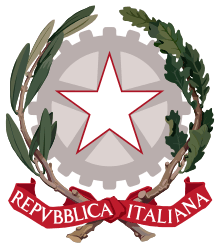The Moro I Cabinet was the Government of Italy headed by Prime Minister Aldo Moro from 4 December 1963 until 22 July 1964 for a total of 231 days, or 7 months and 18 days. The cabinet is described as an organic centre-left government.[1]
- Composition of Government:
Ministers Without Portfolio
| Presidents for the Committee of Ministers for Southern Italy and the Depressed Zones |
Attilio Piccioni, Giulio Pastore |
| Parliamentary Relationships and Reforms |
Umberto Delle Fave |
| Universities and Research |
Carlo Arnaudi |
| Bureaucratic and Public Administration Reform |
Luigi Preti |
Ministers
| Minister |
Giuseppe Saragat |
| Deputy Ministers |
Arialdo Banfi, Giuseppe Lupis, Ferdinando Storchi |
| Minister |
Giulio Andreotti |
| Deputy Ministers |
Mario Marino Guadalupi, Guglielmo Pelizzo, Natale Santoro |
| Minister |
Luigi Gui |
| Deputy Ministers |
Maria Badaloni, Giorgio Fenoaltea, Domenico Magrì |
| Minister |
Carlo Russo |
| Deputy Ministers |
Luigi Angrisani, Remo Gaspari |
Employment and Social Security
| Minister |
Giacinto Bosco |
| Deputy Ministers |
Ettore Calvi, Simone Gatto, Anselmo Martoni |
Tourism and Events
| Minister |
Achille Corona |
| Deputy Minister |
Ruggero Lombardi, Pietro Micara |
Events
- 4 December 1963. The transitional government led by Giovanni Leone was followed by an historic agreement between the Christian Democrats (DC) and Italian Socialist Party (PSI) - desired by Aldo Moro - which led to the first government in the Italian Republic which included a socialist party. PSI leader Pietro Nenni was Deputy Prime Minister, alongside 6 socialist ministers. However, some socialist parliamentarians (25 Deputies and 13 Senators) expressed their dissatisfaction and founded a new party, known as the Italian Socialist Party of Proletarian Unity, PSIUP. Dissent came also from some Christian Democrats, for example Mario Scelba, leader of the Centrist current. When debate was completed, the government obtained a vote of confidence (in the Chamber of Deputies 350 yes, 233 no, 4 abstensions; in the Senate, 175 yes, 111 no).
- 27 December 1963. Molise was established as the twentieth region of Italy, separated out from the former portion known as Abruzzo-Molise.
- 26 January 1964. The president of the Council, Aldo Moro, resigned from his post as party secretary of the Christian Democrats, leaving that position to Mariano Rumor (of the Dorotea current) and the vice secretariat to Arnaldo Forlani (of the Fanfaniano current).
- 27 May 1964. Government measures reach a crisis: the socialist budget minister Antonio Giolitti says he is not in accord and foresees and aggravation of the situation; also his Christian Democratic colleague at Treasury, Emilio Colombo, says that he foresees an economic collapse on account of excessive increase in salaries. A few days later, ad avallare this situation, and the governor of the Bank of Italy, Guido Carli, says that the entire system of production will pay the consequences.
- 25 June 1964. The government falls on a measure concerning private education. Only 7 voti di scarto determined the rejection of the government proposal to allocate 149 million lire for private education, a negligible sum but the opposition takesit as a matter of principle. Other matters of contention are the tax on automobiles, the increased price of petrol, and above all the new urbanistic plan proposed by socialist minister Giovanni Pieraccini.
- 26 June 1964. Lo scontro è infuocato: socialists, social democratics, republicans, as well as some of Moro's own Christian Democrats fail to back the measure. The government cannot stand, and Moro resigns.
